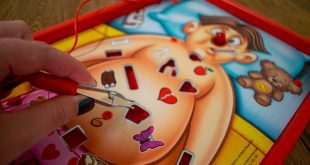 A balanced diet is key to good health.
A balanced diet is key to good health.
Bad mood, frequent colds, brittle hair and nails, dry skin… These and other health problems are often a consequence of lack of vitamins and minerals in the body. To return the balance to help a balanced diet. What products and how much to eat so that your body will not suffer from lack of vitamins.
Meat: 170 grams per day
Meat is a source of B vitamins, vitamin PP, vitamin H, phosphorus, molybdenum and fluorine. Daily rate of meat for an adult of average weight – 170 g. It’s red meat and poultry in different proportions.
Not necessarily eat this amount of meat each day. You can eat meat dishes 250 g 4 times a week.
Fish: 300 g per week
Fish is a source of vitamin B12, phosphorus. In marine fish contain iodine, selenium, omega-3 fatty acids. Try to include in the diet of fish 3 times a week 100 g or 2 times a week for 150 G. in addition to fish in this rule includes the seafood – shrimp, squid, mussels, etc.
vitamins and minerals in fish
Dairy products: 900 g per day
Dairy products are a source of essential building materials for the body — full of protein and calcium. They also contain B vitamins – B2 and B12, copper.
To prevent a lack of vitamins and minerals to your balanced diet every day should include:
Milk and milk drinks – 305 g
Cheese — 50 g
Sour cream – 10 g
Butter – 10 g
Hard cheese – 16
Vegetables, herbs: 300-400 grams per day
Vegetables – source of vitamins C, B3, beta-carotene, fluorine. In the skin of vegetables contains calcium in green vegetables is iron, and sheet – manganese and molybdenum. Let your Desk every day will be fresh and raw vegetables, dishes of steamed, boiled and fried vegetables. Follow the vegetable rule do not overlap potatoes.vitamins and minerals in vegetables and fruits
Fruits: 200-300 grams per day
These products – sources of vitamins C, B3, beta-carotene, iron. We are talking about fresh fruits and berries, freshly cooked fruit (in pies, baked). Fruits and berries in compotes and jams do not contain sufficient amounts of vitamins and minerals.
Grains (flour, cereals, beans): 270 g
Grains – source of vitamins B, PP, H, vitamin E, calcium, potassium, magnesium, manganese, chromium, molybdenum.
In this category of products includes all cereals, bread and pasta. It is advisable to prefer whole grain products. For prevention of deficiency of vitamins in the body and imbalance of minerals, try to combine different types of grain.
Bread: 200-250 grams per day
Bread belongs to the grain, but it should speak separately. In a balanced diet daily intake 200-250 g includes all kinds of bread – white, black and whole grain.
Fats: 1-1,3 7/kg of body weight per day
Norm fats — 1-1,3 g per kg of your weight per day. A person weighing 80 kg requires 80-90 grams of fat. This rule includes oil and butter, and the fats that you consume in pure form (along with fatty foods – meat, cheese, etc.) In a balanced diet should be present and animal and vegetable fat.
Fatty foods are a source of vitamins A, B vitamins, vitamins E and K. they contain useful minerals.
Eggs: 1 piece in 2 days
Eggs – source of vitamins B3, H, D, calcium, phosphorus and selenium. According to the rules of a balanced diet, you can eat one egg every 2 days.
Adhering to these recommendations for a balanced diet, you will be able to avoid the lack of vitamins in the body and deficiency of minerals. If you have a weakened immune system, there are diseases of the digestive system, it is possible that your doctor will advise you to take extra vitamins and minerals in the form of pharmaceutical additives.








